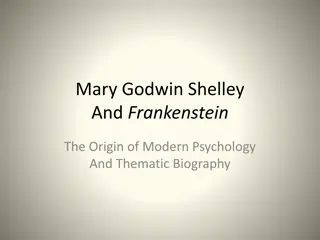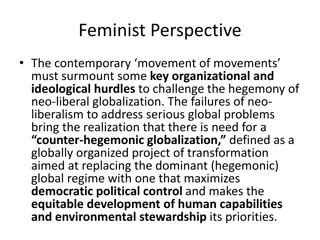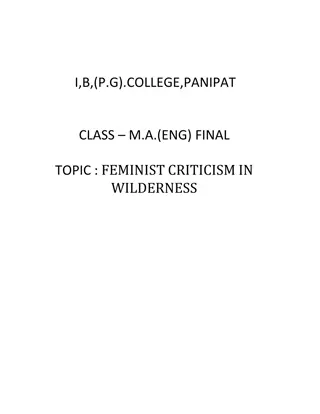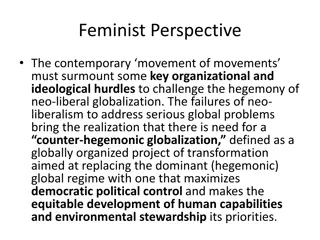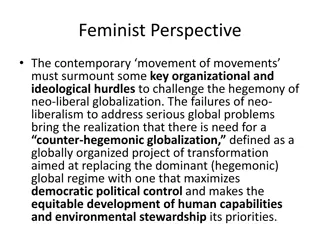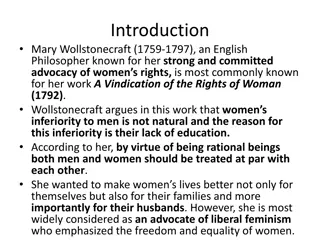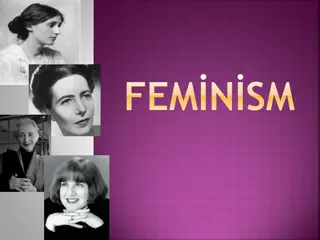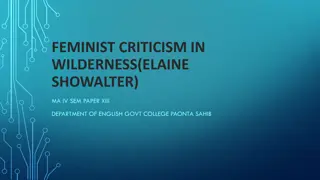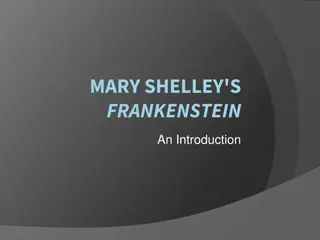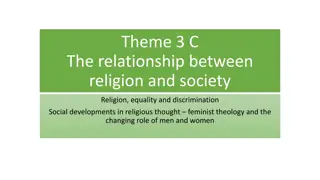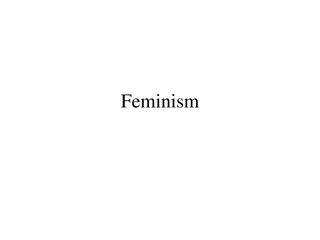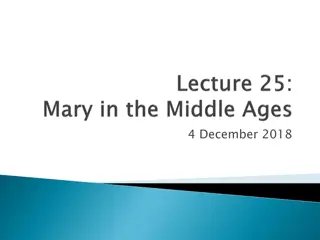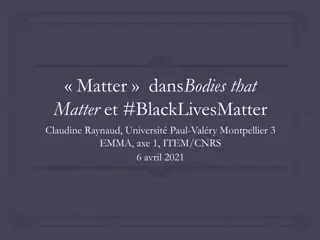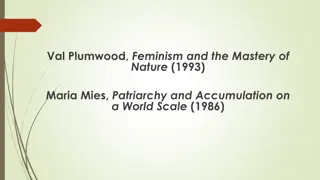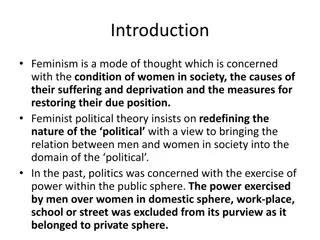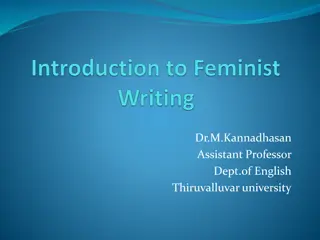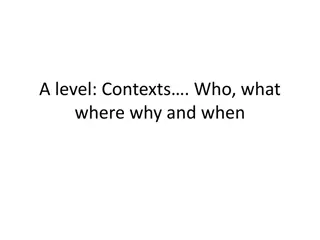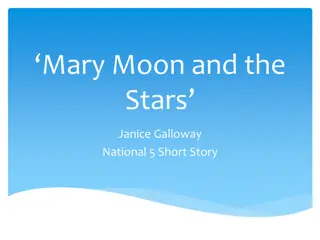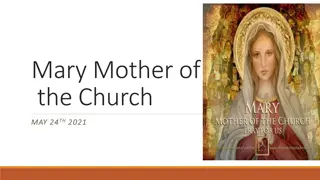Mary Wollstonecraft: British Feminist Writer and Philosopher
Mary Wollstonecraft (1759-1797) was an influential British writer and feminist known for her work, "A Vindication of the Rights of Woman." Her life was marked by controversial relationships and she married philosopher William Godwin. Despite her untimely death at 38, Wollstonecraft's advocacy for women's rights has had a lasting impact on feminist movements.
Download Presentation

Please find below an Image/Link to download the presentation.
The content on the website is provided AS IS for your information and personal use only. It may not be sold, licensed, or shared on other websites without obtaining consent from the author. Download presentation by click this link. If you encounter any issues during the download, it is possible that the publisher has removed the file from their server.
E N D
Presentation Transcript
27 April Birth of Mary Wollstonecraft in Spitalfields, London. Wollstonecraft's second job starts school in Islington. Wollstonecraft's school moved from Islington to Newington Green. Publication of Wollstonecraft's first book, Thoughts on the Education of Daughters. Publication of Wollstonecraft's first novel, Mary: A Fiction. Publication of Wollstonecraft's children's book, Original Stories from RealLife. 1789 Publication of Wollstonecraft's anthology, The FemaleReader. Wollstonecraft becomes romantically involved with the artist and writer Henry Fuseli 1792 January Publication of Wollstonecraft's treatise A Vindication of the Rights ofWoman Wollstonecraft, Fuseli, and his wife come to an emotional crisis. 1793 Wollstonecraft meets and falls in love with American adventurer Gilbert Imlay in France. Imlay returns to England, leaving Wollstonecraft and their daughter alone. April Wollstonecraft returns to London to join Imlay and learns of his infidelity. May Wollstonecraft's first suicide attempt; she is saved by Imlay. October Wollstonecraft's second suicide attempt; she jumps off of Putney Bridge into the River Thames and is saved by strangers. 1759 1783 1784 1787 1788 1794 1795
January Publication of Wollstonecraft's Letters Written in Sweden, Norway, andDenmark 21 August Wollstonecraft begins affair with WilliamGodwin. 1796 1797 29 March Wollstonecraft and Godwin marry; they lose friends because it is revealed that Wollstonecraft was never married to Imlay. 30 August Birth of Wollstonecraft and Godwin's daughter, Mary Shelley, future author of Frankenstein. 10 September Death of Mary Wollstonecraft from complications in childbirth. Publication of Godwin's Memoirs of the Author of A Vindication of the Rights ofWoman, the first biography of Wollstonecraft; Godwin's openness regarding her love affairs destroyed her reputation for a century. 1798
Mary Wollstonecraft; 27 April 1759 10 September 1797) was an eighteenth- century British writer, philosopher, and feminist. During her brief career, she wrote novels, treatises, a travel narrative, a history of the French Revolution, a conduct book, and a children's book. Wollstonecraft is best known for A Vindication of the Rights of Woman (1792), in which she argues that women are not naturally inferior to men, but appear to be only because they lack education. She suggests that both men and women should be treated as rational beings and imagines a social order founded on reason. Among the general public and specifically among feminists, Wollstonecraft's life has received much more attention than her writing because of her unconventional, and often tumultuous, personal relationships. After two ill-fated affairs, with Henry Fuseli and Gilbert Imlay, Wollstonecraft married the philosopher William Godwin, one of the forefathers of the anarchist movement; they had one daughter, Mary Godwin (later Mary Shelley), who would go on to author Frankenstein. Wollstonecraft died at the age of thirty-eight due to complications from childbirth, leaving behind several unfinished manuscripts.
After Wollstonecraft's death, Godwin published a Memoir (1798) of her life, revealing her unorthodox lifestyle, which inadvertently destroyed her reputation for a century. However, with the emergence of the feminist movement at the turn of the twentieth century, Wollstonecraft's advocacy of women's equality and critiques of conventional femininity became increasingly important. Today Wollstonecraft is regarded as one of the founding feminist philosophers, and feminists often cite both her life and work as important influences.
Godwin and Wollstonecraft's unique courtship began slowly, but it eventually became a passionate love affair. Godwin had read her Letters Written in Sweden, Norway, and Denmark and later wrote that "If ever there was a book calculated to make a man in love with its author, this appears to me to be the book. She speaks of her sorrows, in a way that fills us with melancholy, and dissolves us in tenderness, at the same time that she displays a genius which commands all our admiration." Once Wollstonecraft became pregnant, they decided to marry so that their child would be legitimate. Their marriage revealed the fact that Wollstonecraft had never been married to Imlay, and as a result she and Godwin lost many friends. Wollstonecraft died of septicemia on 10 September. Godwin was devastated: he wrote to his friend Thomas Holcroft, "I firmly believe there does not exist her equal in the world. I know from experience we were formed to make each other happy. I have not the least expectation that I can now ever know happiness again."
A self-taught native of London, Mary Wollstonecraft worked as a schoolteacher and headmistress at a school she established at Newington Green with her sister Eliza. The sisters soon became convinced that the young women they tried to teach had already been effectively enslaved by their social training in subordination to men. In Thoughts on the Education of Daughters (1787) Wollstonecraft proposed the deliberate extrapolation of Enlightenment ideals to include education for women, whose rational natures are no less capable of intellectual achievement than are those of men. A Vindication of the Rights of Woman is one of the earliest works of feminist philosophy. In it, Wollstonecraft argues that women ought to have an education commensurate with their position in society and then proceeds to redefine that position, claiming that women are essential to the nation because they educate its children and because they could be "companions" to their husbands, rather than mere wives. Instead of viewing women as ornaments to society or property to be traded in marriage, Wollstonecraft maintains that they are human beings deserving of the same fundamental rights as men.
"On National Education", she argues that all children should be sent to a "country day school" as well as given some education at home "to inspire a love of home and domestic pleasures." She also maintains that schooling should be co- educational, arguing that men and women, whose marriages are "the cement of society", should be "educated after the same model. Wollstonecraft advocates educating children into the emerging middle-class ethos: self-discipline, honesty, frugality, and social contentment. She emphasizes the importance of teaching children to reason. She also advocates the education of women, a controversial topic at the time and one which she would return to throughout her career, most notably in A Vindication of the Rights of Woman. Wollstonecraft argues that well-educated women will be good wives and mothers and ultimately contribute positively to the nation. Wollstonecraft states that currently many women are silly and superficial, but argues that this is not because of an innate deficiency of mind but rather because men have denied them access to education. "Taught from their infancy that beauty is woman's sceptre, the mind shapes itself to the body, and, roaming round its gilt cage, only seeks to adorn its prison." She implies that, without the encouragement young women receive from an early age to focus their attention on beauty and outward accomplishments, women could achieve much more.
Wollstonecraft's lasting place in the history of philosophy rests upon A Vindication of the Rights of Woman (1792). In this classical feminist text, she appealed to egalitarian social philosophy as the basis for the creation and preservation of equal rights and opportunities for women. The foundation of morality in all human beings, male or female, is their common possession of the faculty of reason, Wollstonecraft argued, and women must claim their equality by accepting its unemotional dictates. Excessive concern for romantic love and physical desirability, she believed, are not the natural conditions of female existence but rather the socially-imposed means by which male domination enslaves them. Wollstonecraft complained that, like fortune tellers, quack healers, and the like, traditional religious leaders preyed upon the inadequate educations of women, concealing from them that they, like men, could have some very "serious purpose" in life, which would require maximal development of their creative potentials. Women are not put on earth merely "to procreate and rot," she says in her very memorable phrase.
Clearly Wollstonecraft was saying that much of the constrainton women arises from the social conventions regarding what they may or may not say, not from any public censorship. In part to remedy their social inequality, she vigorously argues that they should have all of the political rights enjoyed by men, including voting. If one cannot show that women lack reason, any exclusion must be called "tyranny." Indeed, the tyranny of exclusion from full political rights is one cause of the mental limitations of women which are falsely believed to be natural: "Make them free and they will quickly become wise and virtuous, as men become more so; for the improvement must be mutual, or the injustice which one half of the human race are obliged to submit to, retorting on their oppressors, the virtue of man will be worm-eaten by the insect whom he keeps underhis feet."
For Wollstonecraft, natural rights are truly universal, and extend to women as well as to men, since women are not meant to be confined to a wholly private sphere of life. While men may cite their specific virtue of courage on the battlefield, Wollstonecraft retorts that most wars are unnecessary. Besides, in peacetime professional soldiers spend their time trying to get promoted by pandering to those above them in the hierarchies. They dissipate the rest of their time in an inane life style very like that of idle, rich women: continual primping, flirtatious conversation, and the like. "How many women....waste life away the prey of discontent, who might have practiced as physicians, regulated a farm, managed a shop, and stood erect, supported by their industry, instead of hanging their heads surcharged with the dew of sensibility, that consumes the beauty to which it at first gavelustre... Wollstonecraft's ideas that women, too, enjoy natural rights and should enjoy therefore all political rights accorded to men, influenced the 1848 gathering of the Seneca Falls convention in New York. But aside from the territories of Wyoming and later Utah in the United States, women were not to acquire the right to vote in most nations until the early 20th century.
My own sex, I hope, will excuse me, if I treat them like rational creatures, instead of flattering their fascinating graces, and viewing them as if they were in a state of perpetual childhood, unable to stand alone. I earnestly wish to point out in what true dignity and human happiness consists I wish to persuade women to endeavour to acquire strength, both of mind and body, and to convince them that the soft phrases, susceptibility of heart, delicacy of sentiment, and refinement of taste, are almost synonimous with epithets of weakness, and that those beings who are only the objects of pity and that kind of love, which has been termed its sister, will soon become objects of contempt. The education of women has, of late, been more attended to than formerly; yet they are still reckoned a frivolous sex, and ridiculed or pitied by the writers who endeavor by satire or instruction to improve them. It is acknowledged that they spend many of the first years of their lives in acquiring a smattering of accomplishments: meanwhile strength of body and mind are sacrificed to libertine notions of beauty, to the desire of establishing themselves, the only way women can rise in the world, by marriage. And this desire making mere animalsof them, when they marry they act as such children may be expected to act: they dress; they paint, and nickname God's creatures. Surely these weak beings are only fit for a seraglio! Can they govern a family, or take care of the poor babes whom they bring into the world?
Women are, in fact, so much degraded by mistaken notions of female excellence, that I do not mean to add a paradox when I assert, that this artificial weakness produces a propensity to tyrannize, and gives birth to cunning, the natural opponent of strength, which leads them to play off those contemptible infantile airs that undermine esteem even whilst they excite desire. Do not foster these prejudices, and they will naturally fall into their subordinate, yet respectable station, in life. It seems scarcely necessary to say, that I now speak of the sex in general. Many individuals have more sense than their male relatives; and, as nothing preponderates where there is a constant struggle for an equilibrium, without it has naturally more gravity, some women govern their husbands without degrading themselves, because intellect will always govern.
In 1792, she published her Vindication on the Rights of Woman, an important work which, advocating equality of the sexes, and the main doctrines of the later women's movement, made her both famous and infamous in her own time. She ridiculed prevailing notions about women as helpless, charming adornments in the household. Education held the key to achieving a sense of self- respect and anew self-image that would enable women to put their capacities to good use. Mary Wollstonecraft was a radical in the sense that she desired to bridge the gap between mankind's present circumstances and ultimate perfection. She was truly a child of the French Revolution and saw a new age of reason and benevolence close at hand. Mary undertook the task of helping women to achieve a better life, not only for themselves and for their children, but also for their husbands. Of course, it took more than a century before society began to put her views into effect.


